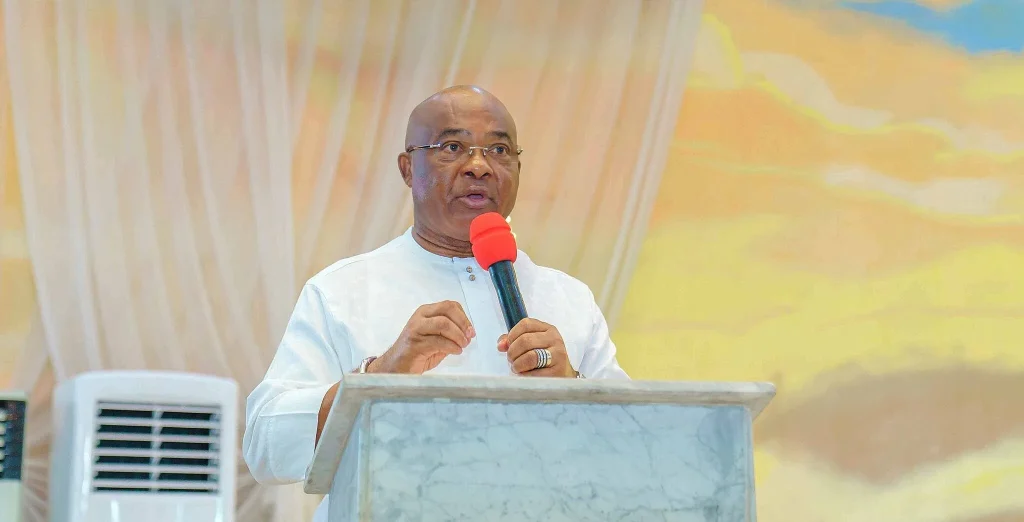
Hope uzodimma (PHOTO CREDIT: @Hope_Uzodimma1)
In a bold move to cushion the impact of economic hardship on workers, Governor Hope Uzodimma of Imo State has approved a new minimum wage of N104,000 for civil servants, making the state one of Nigeria’s highest-paying employers in the public sector.
The announcement was made during a meeting with labor union leaders on Tuesday at the Government House in Owerri. The decision represents a significant increase from the previous N76,000 minimum wage, reflecting the government’s commitment to workers’ welfare amid rising living costs.
According to Uzodimma, the salary review cuts across multiple sectors, with doctors’ minimum wage raised from N215,000 to N503,000, while lecturers in tertiary institutions will now earn N222,000, up from N119,000. The adjustments are part of the state’s broader effort to stimulate economic growth and improve workers’ living conditions.
Governor Uzodimma attributed the wage review to significant improvements in the state’s financial health. He disclosed that Imo’s Internally Generated Revenue (IGR) has grown from N400 million to over N3 billion monthly, while federal allocations have doubled from N5-7 billion in 2020 to N14 billion today.
He also revealed that the state’s debt burden had dropped from over N280 billion in 2020 to less than N100 billion, highlighting fiscal discipline and prudent financial management as key drivers of this progress.
Addressing the broader economic context, Uzodimma acknowledged the challenges posed by the removal of fuel subsidy but praised President Bola Tinubu’s decision as necessary for long-term growth.
“It is a thing of joy that we have started seeing the dividends of that bold decision,” the governor said, emphasizing the need for policies that allow the benefits of subsidy removal to reach ordinary Nigerians.
The leadership of the Nigeria Labour Congress (NLC) in Imo described the wage increase as a “victory for the entire workforce.” The NLC Chairperson, Uchechigemezu Nwigwe, lauded the governor for prioritizing workers’ welfare, saying, “Today, no worker in Imo will say you have not been fair to us.”
Similarly, the Trade Union Congress (TUC) praised Uzodimma for demonstrating strong political will to implement the pay rise despite economic pressures.
Uzodimma also announced that starting August 27, the state will begin paying N16 billion in outstanding gratuities owed to pensioners. In addition, the administration has invested heavily in infrastructure rehabilitation, health sector reforms, and a new health insurance scheme to ensure quality healthcare for citizens.
The governor charged workers to reciprocate the gesture by improving productivity and maintaining ethical standards in the public service.
With the new wage structure, Imo State sets a benchmark for other states in Nigeria, demonstrating that economic reforms, improved revenue, and strong governance can translate into tangible benefits for workers.